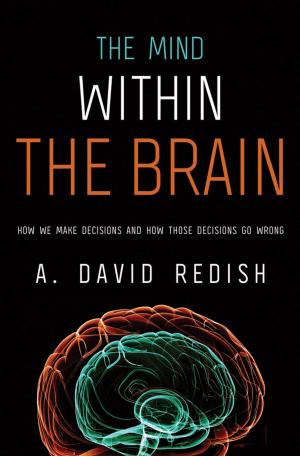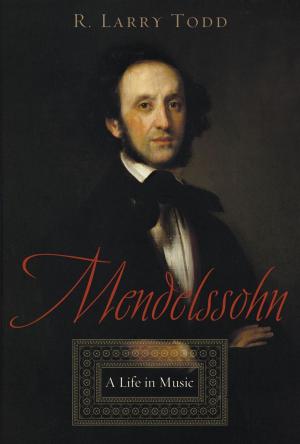| Author: | Roberta Ness | ISBN: | 9780199976614 |
| Publisher: | Oxford University Press, USA | Publication: | May 17, 2013 |
| Imprint: | Oxford University Press | Language: | English |
| Author: | Roberta Ness |
| ISBN: | 9780199976614 |
| Publisher: | Oxford University Press, USA |
| Publication: | May 17, 2013 |
| Imprint: | Oxford University Press |
| Language: | English |
Genius can seem incomprehensible even to seasoned researchers. Einstein's theory of special relativity, Rutherford's glimpse into the invisible heart of the atom--such astonishing breakthroughs seem almost magical--like bolts of insight arising from nowhere. Genius Unmasked reveals the true nature of genius, taking the reader on a journey through the lives and minds of more than a dozen brilliant scientists, ranging from Darwin, Einstein, Edison, and Pasteur, to such lesser known but important innovators as Maria Montessori. Their stories are truly compelling, and at time inspiring, but, more important, Roberta Ness uses these stories to highlight a cognitive tool box that anyone can employ. Ness, an authority on innovation, outlines eleven basic strategies--including finding the right question, observation, analogy, changing point of view, dissection, reorganization, the power of groups, and frame shifting. Beginning with Charles Darwin, who left behind a voluminous trail of writing that preserved his thinking process, Ness illuminates his use of all eleven tools. Indeed, for each genius, she combines a fascinating narrative of their creative work with an astute analysis of how they used particular tools to achieve their breakthroughs. We see how Ancel Keys, the father of the Mediterranean diet, used the "power of groups"--enlisting a team of statisticians, nutritionists, physiologists, and physicians--to track the health benefits of exercise and diet. How Paul Baran conceived packet switching--the idea that made the internet possible--through analogy with the neurological networks of the brain. And how Maria Montessori overturned the conventional frame of thinking about the role of children in education. Genius Unmasked shows how the most creative minds in science used tools that can help us improve our creative abilities. Geniuses are not omnipotent. They are just very skilled at employing the creativity toolbox highlighted in this book.
Genius can seem incomprehensible even to seasoned researchers. Einstein's theory of special relativity, Rutherford's glimpse into the invisible heart of the atom--such astonishing breakthroughs seem almost magical--like bolts of insight arising from nowhere. Genius Unmasked reveals the true nature of genius, taking the reader on a journey through the lives and minds of more than a dozen brilliant scientists, ranging from Darwin, Einstein, Edison, and Pasteur, to such lesser known but important innovators as Maria Montessori. Their stories are truly compelling, and at time inspiring, but, more important, Roberta Ness uses these stories to highlight a cognitive tool box that anyone can employ. Ness, an authority on innovation, outlines eleven basic strategies--including finding the right question, observation, analogy, changing point of view, dissection, reorganization, the power of groups, and frame shifting. Beginning with Charles Darwin, who left behind a voluminous trail of writing that preserved his thinking process, Ness illuminates his use of all eleven tools. Indeed, for each genius, she combines a fascinating narrative of their creative work with an astute analysis of how they used particular tools to achieve their breakthroughs. We see how Ancel Keys, the father of the Mediterranean diet, used the "power of groups"--enlisting a team of statisticians, nutritionists, physiologists, and physicians--to track the health benefits of exercise and diet. How Paul Baran conceived packet switching--the idea that made the internet possible--through analogy with the neurological networks of the brain. And how Maria Montessori overturned the conventional frame of thinking about the role of children in education. Genius Unmasked shows how the most creative minds in science used tools that can help us improve our creative abilities. Geniuses are not omnipotent. They are just very skilled at employing the creativity toolbox highlighted in this book.















